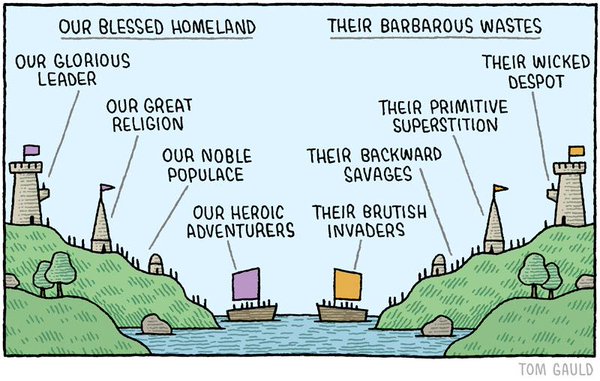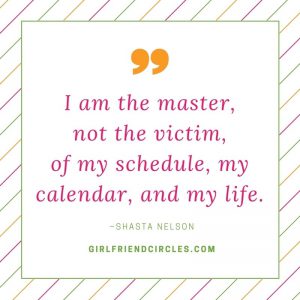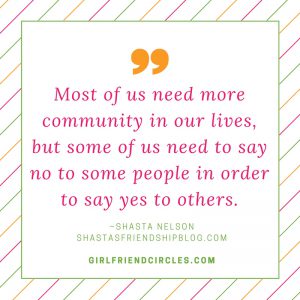I saw on the news last night that the American Psychological Association says that "fully half of Americans say that the election has been a very, or somewhat significant, source of stress" for us. In fact, a new term has been coined: Election Stress Disorder. And more of us are prone to get it, if we're not already among the millions who already have it.
Undoubtedly a huge portion of the stress comes from our fear of the "other side."
Certainly how we view the candidates, and subsequently their policies and worldviews, leaves a lot of room for discordant opinions and interpretations. But as an observer of relationships, the part that pains me the most is how this is impacting how we relate to each other.
Relationships At Risks This Political Season
I have caught myself judging others, "How can they believe this?" or "How can they possibly support that?" Perhaps you have, too. Whether it's on Facebook, in our offices, or around our dinner tables-- the divide has never seemed so huge. Or so very deep.
This cartoon by Tom Gauld illustrates, only too well, how many of us are judging the other side:
 Relationships that experience an increase in judgment, a loss of respect, ongoing criticisms, and frequent misunderstandings are prone to leave us having lost that loving feeling. We know from research that our relationships need to keep a 5:1 positivity-to-negativity ratio in order to stay healthy and I'm fearful that we're engaging in battles and brimming with judgments that aren't being counteracted with nearly enough love, kindness, and empathy. That's a recipe for some serious disconnection.
Relationships that experience an increase in judgment, a loss of respect, ongoing criticisms, and frequent misunderstandings are prone to leave us having lost that loving feeling. We know from research that our relationships need to keep a 5:1 positivity-to-negativity ratio in order to stay healthy and I'm fearful that we're engaging in battles and brimming with judgments that aren't being counteracted with nearly enough love, kindness, and empathy. That's a recipe for some serious disconnection.
And it's a vicious cycle because, as we've been studying nuerobiology and relationships in GirlFriendCircles.com this month (see the note at the bottom for more details), we are reminded that the less connection and intimacy we feel-- the more likely we are to feel anxiety, irritability, stress, distrust, rejected, misunderstood, and apathetic. In other words, the less love we have in our lives-- the more likely we are to lash out at others, devalue their lives and opinions, spew distrust, and feel fear.
It's a double-whammy: we have an epidemic of loneliness that is leaving most people feeling more irritable and anxious about others AND then the way we treat each other ends up creating even more disconnection and distrust.
Choose To Be a Facilitator of Connection
In the big scheme of things, I am reminded that indeed friendships can save the world as we'd undoubtedly navigate these political transitions with far more grace if we lived in a world where we felt truly connected to each other; but in the short-term, there are things that some of us can choose to do that will help remind others (and ourselves) that we are all human, valuable, and safe. We can still love and relate even if we see the world differently.
Next time you scroll through Facebook or find yourself in a political conversation, I dare you to try one of these:
- Look for Common Ground: What can you agree with this person on? Can you both agree you want fewer abortions? Can you both agree you want less mass school shootings? Can you both agree that sexism and racism is being revealed? What if you and the other person actually could agree on the desired outcome and really only differ on best strategy? Let's not fall for the myth that if we agree with them that we're "giving up ground," or "losing." Challenge yourself to always find one thing you have in common with them.
- Say Something Affirming About the Other Side: The last question of the last debate challenged our politicians to say something positive about the other and you could just feel a collective sigh from all of us watching. It's exhausting to always be on the defensive. What if you actually wrote a comment on a friends post saying "you know this is one thing I admire about your candidate..." Challenge yourself to sincerely affirm something with whom you disagree.
- Assume Good Intentions: This one is so hard as we are so quick to assign motive to each others actions. But we can either assume the worst and be wrong at least 50% of the time; or assume the best, and risk being wrong sometimes in that direction, too-- so why wouldn't we start from a place of hope and trust in each other? Research shows us how blind we are to our own levels of emotional health, almost always scoring ourselves at our highest because we know our justified excuses, valid reasons, and good motives; and that we score others at the lowest of the range because we can't see what battles they're fighting, what wounds they're acting out of, or what hopes that they had for that action. We can afford to be more generous knowing how horribly inaccurate we actually are at judging each other. Challenge yourself to try to defend "the other" as quickly as we defend ourselves and our candidate.
- Increase our Positive Interaction: It's impossible to not feel some angst in our relationships, but whether it's on Facebook or in real life-- let's be cognizant of the fact that those around us need 5 positive interactions for every negative interaction in order to keep the balance. So plan activities you both enjoy, post positive articles, write affirmations, share jokes, and overall make sure you're not just spewing, fighting, and complaining more than you're loving, shining, and leaving others feeling better about life.
These might sound Pollyanna-ish, or like I'm asking for the impossible. Your entire ego and sense of "what's right" might feel challenged. But the truth is-- at this point, with the methods we're using, we're not changing anyone's viewpoint and we're destroying the fabric of our humanity. Maybe it's time for us to give the "muscles of our best selves" a bit of a work-out and see if we can't get to election day with a bit more love left in our hearts.
What other ideas do you have? Share them with us!
Namaste (the best in me is choosing to look for the best in you),
Shasta
P.S.
An illuminating take on this subject that helped inspire this post, also includes some great data and analysis: The "Other Side" is Not Dumb".
P.P.S.
I couldn't be more proud of the emotionally intelligent women who have joined GirlFriendCircles.com as they've committed to paying attention to their relationships in an ongoing way, learning about how to develop healthier connections with monthly classes, and choosing to be counter-cultural as women who practice placing the value on their relationships that science shows makes us happier and healthier. Join today to access this month's class "The 4 Ways to Rewire Our Brain for Safer Relationships" featuring, Dr. Amy Banks, the foremost authority in the combined fields of nuerobiology and relationships.
Save






 need to say no to some people in order to say yes to others.
need to say no to some people in order to say yes to others.

